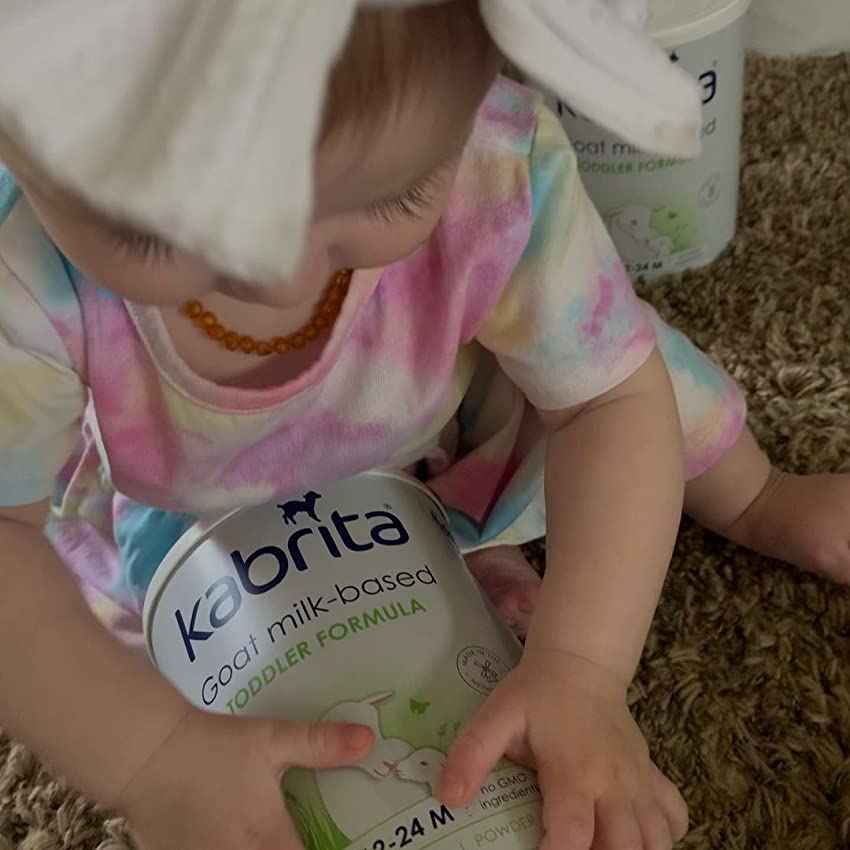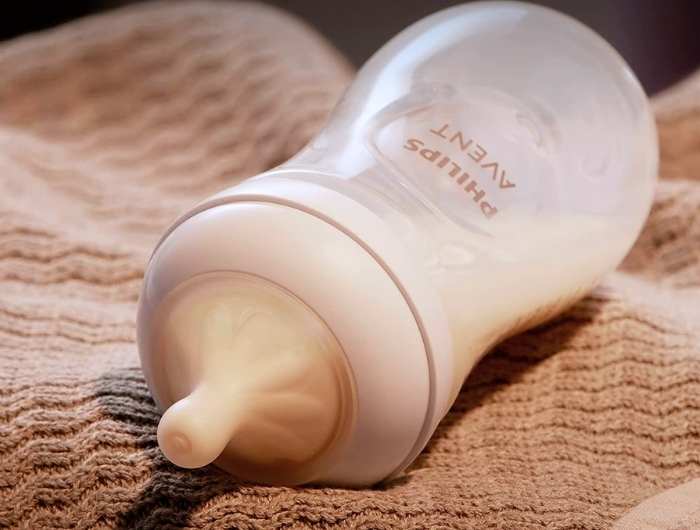In this blog post, we will compare breastfeeding and formula feeding in terms of their advantages and disadvantages for you and your baby.
Breastfeeding Advantages Baby
Breastfeeding is the natural way of feeding your baby. It provides many health benefits for both you and your baby. Some advantages of breastfeeding are:
Breast milk is the perfect food for your baby. Human milk contains all the nutrients, antibodies, hormones, and enzymes that your baby needs to grow and develop. Breast milk also changes according to your baby's needs and stage of development.
Breastfed babies have stronger immune systems and are less likely to develop sudden infant death syndrome (SIDS). Breastfeeding protects your baby from infections and diseases.
Breastfed babies also have lower risks of diarrhea, respiratory infections, ear infections, allergies, asthma, eczema, diabetes, obesity and leukemia. Breast milk also boosts your baby's immune system and helps them fight off germs.
Breastfeeding Advantages Mother
Another great advantage of breastfeeding is the bond it creates between mother and baby. The closeness and comfort help build a strong emotional connection between the two.
Breastfeeding releases hormones that make you feel relaxed and happy. It also helps you establish a close and loving relationship with your baby. Breastfeeding can also reduce postpartum depression and anxiety.
Breastfeeding benefits your health as well. Breastfeeding lowers your risks of breast cancer, ovarian cancer, osteoporosis, cardiovascular disease, and type 2 diabetes. Breastfeeding also helps you lose weight after pregnancy and delays the return of your periods. Breastfeeding also aids in rapid uterine contraction, which could help prevent postpartum hemorrhage.
Nourishing your baby with breast milk is convenient and economical. Breast milk is always available, fresh, and at the right temperature. You don't need to buy, prepare, or sterilize bottles or formula. Breastfeeding also saves you money and time.
Breastfeeding Disadvantages
Breastfeeding can also have some challenges and drawbacks. Some disadvantages of breastfeeding are:
Breastfeeding can be painful and difficult at first. You may experience sore nipples, engorgement, mastitis, or thrush. You may also have trouble with latching, positioning, or milk supply. You may need to seek help from a lactation consultant or a support group to overcome these issues.
It can also be demanding and restrictive to breastfeed your baby. You may feel tired, hungry, thirsty, or stressed from breastfeeding. You may also have to breastfeed frequently, especially at night. You may have less freedom and flexibility to go out, work, or travel. You may also have to limit or avoid certain foods, drinks, medications, or substances that can affect your breast milk or your baby.
Breastfeeding can affect your relationship with your partner or others. You may feel less attractive or confident about your body after breastfeeding. You may also have less time or interest in intimacy with your partner. You may also face criticism or pressure from others who do not support or understand your choice to breastfeed.

Formula Feeding Advantages
Formula feeding is an alternative way of feeding your baby. It involves giving your baby infant formula from a bottle. The best formula for babies is a manufactured product that tries to mimic human breast milk. Some advantages of formula feeding are:
Bottle feeding can be easier and more comfortable for you. You don't have to worry about pain, problems, or complications from breastfeeding. You can also share the feeding responsibility with your partner or others. You can also wear whatever you want and eat whatever you like without affecting your baby.
Formula feeding can give you more freedom and flexibility. You can feed your baby anytime and anywhere without needing to breastfeed or pump. You can also have more time for yourself, your work, or your hobbies. You can also travel more easily with formula feeding.
Bottle feeding can provide consistency and certainty for you and your baby. You can measure how much formula your baby consumes and adjust accordingly. You can also choose the type of formula that suits your baby's needs and preferences.
If your baby has a milk protein allergy you can try the best tasting hypoallergenic formula or if you have a toddler you can try the best toddler formula for breastfed babies.
Formula feeding can also help you establish a regular feeding schedule for your baby.
Formula Feeding Disadvantages
Feeding baby formula can also have some limitations and drawbacks. Some disadvantages are:
Formula feeding does not provide the same health benefits as breastfeeding to nursing mothers and their babies. Formula fed babies have higher risks of infections, diseases, allergies, obesity, and other health problems than breastfed babies. Formula feeding also does not protect you from breast and ovarian cancers, or other health issues that breastfeeding does.
Infant formula lacks the immune-system-boosting antibodies present in breast milk. Therefore, formula-fed babies are more likely to have ear infections or other illnesses.
Additionally, formula feeding is more expensive than breastfeeding and requires more effort in preparation and sterilizing the feeding bottles. Also, babies who drink formula usually get more calories than babies fed breast milk.
If you choose to formula feed your baby, follow the instructions on the label carefully and use clean water and equipment. You should also consult your doctor about the best type of formula for your baby, as some babies may have allergies or intolerances to certain ingredients. You should also try to cuddle and talk to your baby during feeding times to enhance your bond.
Other Factors to Consider
The World Health Organization recommends breastfeeding as the best food for babies during the first six months of life. Although there are many benefits to breastfeeding, it may not be workable for all women.
Lactation consultations help you gain the knowledge and support you need to be successful at breastfeeding. Formula feeding may be necessary when medical issues or personal choices prevent nursing.
How To Choose A Baby Formula
Choosing the right baby formula is crucial to ensure your little one is getting adequate nourishment. There are so many types of baby formulas available, from soy to cow's milk-based, that it can be overwhelming. Here's what you need to consider:
First, consult with a pediatrician or a certified lactation consultant. They can help you figure out whether you need to switch to formula and which type is best for your baby based on their health needs.
Next, examine the label to see what it contains. Ensure the baby formula contains enough protein, carbohydrates, and healthy fats that are essential for your baby's growth. The nutrient content in baby formula meets strict guidelines and standards set by the regulatory authorities.
Also, consider the form – powder or ready-to-feed? Powdered formula can be more practical in terms of cost and storage, whereas ready-to-feed is considered more convenient. Make sure you follow the directions and the ratio of water to powder to ensure it is safe for your baby.
Last, it might take a few tries to find the formula that works for your baby's digestion. We want to share some tips and advice on how to transition breastfed babies to formula fed babies smoothly and safely.
Don't be hesitant to switch formulas or ask your doctor for recommendations. Switching formulas can be however a tricky process that requires some planning and patience.
Remember, what works for one mom or baby might not be the best fit for yours. Keeping your baby's needs in mind, choose the formula that provides the nutrients necessary for their growth and happiness.
Conclusion
The bottom line is that both breastfeeding and formula bottle feeding have pros and cons, and there is no one right answer for everyone. While breast milk remains the gold standard in infant nutrition because of the wealth of health benefits it provides, formula feeding can be a viable alternative for women who cannot breastfeed.
The best way to feed your baby depends on your personal situation, preferences, goals, and your family's lifestyle. Weigh the advantages and disadvantages of each option carefully and make an informed choice that works for you and your baby.
Also, be flexible and open to change if things do not go as planned. Remember that whatever you decide, you are doing the best for your baby and yourself.
Thank you for reading Mother Bear Reviews, your favorite parenting blog!








